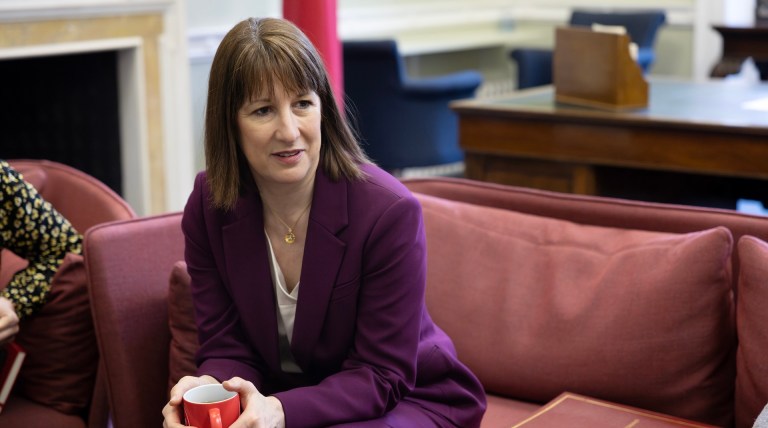Starmer said that he believes people who have been out of work due to long-term sickness face “fear” about returning to employment: “Can they get back into the workplace? Are they going to be able to cope? Is it all going to go hopelessly wrong?”
However, when asked about the potential for sanctioning people if they refuse to look for work, he reiterated that he agreed with the “basic proposition that you should look for work”.
Liz Kendall, the work and pensions secretary, also said in her speech in the Labour Party conference: “The only way to get Britain growing again is to get Britain working again.”
It comes amid fears over potential changes to disability benefits which could see support stripped back. The Conservative government had proposed reforming the personal independence payment (PIP), such as through replacing the benefit with one-off grants or vouchers.
There are also plans to restrict the health element of universal credit through reforming the work capability assessment. By 2028/ 2029, more than 400,000 ill and disabled people could miss out on support worth around £400 each year. Labour is yet to confirm whether it will continue with these plans.
Ayla Ozmen, director of policy and campaigns at anti-poverty charity Z2K, said: “While improving employment support for seriously ill and disabled people is welcome, this must not be used as an excuse for slashing vital financial support – especially when the evidence shows that such cuts do nothing to help people enter work.
Advertising helps fund Big Issue’s mission to end poverty
“The government must commit to protecting financial support for seriously ill and disabled people.”
Big Issue has reported extensively on how difficult the disability benefits system is to navigate already, with some disabled people facing “psychological trauma to the point of being suicidal”.
James Taylor, director of strategy at disability equality charity Scope said: “We still haven’t heard what the government are planning to do with PIP and the work capability assessment. This is making disabled people feel anxious and that they haven’t been listened to. The government needs to work with disabled people to set out a positive vision for the benefits system.”
Research shows that a punitive benefits system – such as the use of sanctions – pushes people further away from the workplace and puts greater pressure on the NHS because of the impact on their mental and physical health.
Chris Thomas, head of the commission on health and prosperity at IPPR, said: “We have to break from the policy trajectory that the last government had, and there are implications that this government will do that. Scratching behind some of the rhetoric, things like bringing health into workplaces as a preventative intervention, linking health and employment services and fixing the NHS in terms of health and care support, I think that’s all good.
“But anything the government might want to talk about in terms of people’s obligations to find work has to be met with a huge amount of state intervention in terms of giving people the means to do that.”
Advertising helps fund Big Issue’s mission to end poverty
Thomas noted that generally, disabled people want to be in work, but they face “barriers” to employment – and the government must look to “bring those down, and that means looking across the health and care system, the social security system, and the standards of employment that we have”.
Harriet Edwards, head of policy at the national disability charity Sense, said: “The prime minister’s comments ignore the enormous and deeply unfair barriers that far too many disabled people face when it comes to jobhunting.
“Benefits are a vital lifeline, not a lifestyle choice, for many people with complex disabilities. For some, working is not possible. But many others desperately want to work and the current system blocks them from doing so.”
Sense’s research shows half of jobseekers with complex disabilities don’t feel they have the support and equipment they need to look for a job. Almost a third (31%) of jobseekers with complex disabilities said that having assistive technology in their jobcentre would help them communicate and look for jobs, while zero jobcentres across the country have this available.
Taylor added: “If the government is serious about supporting disabled people into work they need to stop attacking benefit claimants and address the true barriers to employment.
“Disabled people are pushing hard to get jobs but find the employment market is stacked against them. At the same time nobody should be forced into work if they are unable to work.”
Advertising helps fund Big Issue’s mission to end poverty
The Department for Work and Pensions (DWP) plans to increase employment support people with a new national jobs and careers service, devolved work, health and skills plans, and a youth guarantee for young people.
This plan has been welcomed by charities, but they warn that more must be done to fix the fundamental problems causing worklessness in the UK – including cutting NHS waiting lists and ensuring that people get the financial support they need before their health deteriorates.
Streeting pledged in his speech to send “crack teams of top clinicians to hospitals across the country to roll out reforms – developed by surgeons – to treat more patients and cut waiting lists”. The first 20 hospitals targeted by these teams will be in areas with the highest people off work sick.
Shelley Hopkinson, head of policy and influencing at anti-poverty charity Turn2us, said: “We welcome the prime minister’s focus on supporting those who can work to find secure and meaningful employment.
“However, threatening language and headlines stigmatise the many people who are unable to work due to poor health or long-term conditions and can deter people from claiming the support they need. Most of us will rely on our social security system at some point in our lives.”
An estimated £23bn in financial support goes unclaimed each year, and Hopkinson stresses “it’s crucial that everyone who needs it feels supported and confident in accessing the help available to them”.
Advertising helps fund Big Issue’s mission to end poverty
The Labour conference has also seen the DWP announce a crackdown on welfare fraud, which charities are concerned risks further “stigmatising” benefits claimants and pushing people away from the financial support they need to afford the basics they need to survive.
“We’re against anyone defrauding the system, but the level of fraud with disability benefits is miniscule,” Taylor said. “This narrative demonises disabled people who genuinely need support with the extra costs they face.”
Do you have a story to tell or opinions to share about this? Get in touch and tell us more. Big Issue exists to give homeless and marginalised people the opportunity to earn an income. To support our work buy a copy of the magazine or get the app from the App Store or Google Play.










